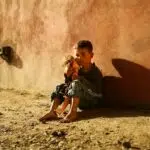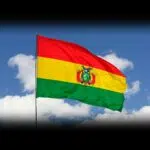Bolivians gather to commemorate the victims of the 2003 oil revolt in an event called the Day of Dignity, observed on October 17 of every year. In a march that turned deadly for many, indigenous Bolivians protested the shipment of their nation’s oil to the United States. Evo Morales, the former president of Bolivia, issued a proclamation declaring a national holiday to honor and remember the fallen.
History of Day of Dignity (Bolivia)
Bolivia’s oil reserves were discovered back when the country was a Spanish colony but suffered from a lack of exploration. The more solemn activity commenced only during the 20th century, and oil production peaked in the country. Oil became the all-important export, and the government pegged its hopes on gas profits to boost the country’s economy.
Critics pointed out that Bolivia would only receive 18% of the earnings under the current regulations, which included a trade agreement with the United States. Additionally, exportation rates were noticeably lower than usual, which prompted worries about the outside exploitation of Bolivia’s natural resources.
Then, in 2002, Bolivia proposed building a pipeline through Chile to transport oil via the Pacific Ocean. This decision got heavy backlash from Bolivians, whose antagonistic history with Chile influenced many against this idea.
By September the following year, this conflict had escalated to increasingly disruptive confrontations between the Bolivian armed forces and the local people. A violent clash a month later — which saw 67 protesters lose their lives — was the turning point of this oil protest. The president resigned and fled to the U.S. Martial law was imposed, and an acting vice-president was elected. The following two years saw more clashes and disputes until the presidential election brought activist and trade union organizer Morales into the political game. After winning the presidency in 2006, the new leader issued a proclamation declaring the nationalization of all gas reserves. He also suggested a designated day, which has been honored since, to remember the victims of the 2003 riot.
Day of Dignity (Bolivia) timeline
Newly elected president Morales enacts a law giving the government full ownership over the oil reserves, fulfilling the electoral promise that got him the majority vote.
Almost 20 years after amendments to Bolivia's list of public holidays are enacted, the Bolivian Senate approves a bill making October 17, also known as National Dignity Day, a yearly holiday.
The total gas output drops to 45 million cubic meters per day from 61 million cubic meters, making it difficult for Bolivia to meet domestic and international demand.
Beginning in June, the Margarita-10 well is anticipated to produce millions of dollars in revenue for the nation.
Day of Dignity (Bolivia) FAQs
What are the main holidays of Bolivia?
Bolivia observes numerous celebrations and festivals, of which the Festival of the Virgen de la Candelaria, Chuquisaca Day, and Labor Day are some of the more massively celebrated ones.
Is Bolivia rich or poor?
Bolivia has officially been classified as a middle-income country, although it is at the lower end of the scale compared to other nations in South America.
Do they speak Spanish in Bolivia?
Spanish is one of the main languages spoken in the country by almost 70% of the population, while the remaining 30% is a mix of various indigenous languages like Quechua and Aymara.
How to Observe Day of Dignity (Bolivia)
Learn more about the victims
Researching Bolivia's Gas War will lead you to various articles about Black October, as the Bolivians termed the devastating 2003 crackdown on protestors. Find out more about the victims and their relatives’ struggle to get justice.
Discover how Bolivia participates
Many Bolivians have different ways of remembering these victims, including marches, parades, and private vigils. Some of these events are available for internet viewing, and local newspapers often report them.
Explore Bolivia's history with oil
Explore the country's fractious and often polarizing history with one of its most important natural resources. Read about how oil became their once-biggest export and how it has continued to impact their economy.
5 Fun Facts About Bolivia And Its Natural Reserves
Their oil reserves are very high
With 211,450,000 barrels of oil in known reserves as of 2016, Bolivia possessed almost 6.4 times as much as it required for consumption.
They are a resource-rich nation
Besides oil, Bolivia has resources like gold, silver, tin, zinc, and gas on its land.
They've moved away from oil exportation
Bolivia has shifted its attention during the past decade to natural gas, accounting for 43% of all exports over the last two decades.
It's a land-abundant country
Bolivia has about 108 million hectares of land — the fifth largest in South America — making the total land area per capita about 12 hectares per person.
Bolivia's land is different
Nearly all of the land in Bolivia is arable, unlike other land-rich regions buried in ice or sand.
Why Day of Dignity (Bolivia) is Important
It ensures the victims are remembered
The 2003 oil crisis is permanently etched in the communal consciousness thanks to the Day of Dignity. This ensures that the tragedy's victims are remembered.
It makes people stand in solidarity
By remembering the victims, the world’s given a chance to stand in solidarity and demand justice for all those affected by Black October. The victim's relatives also get renewed confidence through this show of support.
It highlights a greater issue
Day of Dignity is also an opportunity to draw attention to the bigger problem of the oil crisis and how it affected the operation of an entire nation. Understanding Bolivia's nationalized oil sector through this event becomes a great educational opportunity for us because oil and gas continue to be important foreign and domestic policy priorities in many countries.
Day of Dignity (Bolivia) dates
| Year | Date | Day |
|---|---|---|
| 2025 | October 17 | Friday |
| 2026 | October 17 | Saturday |
| 2027 | October 17 | Sunday |
| 2028 | October 17 | Tuesday |
| 2029 | October 17 | Wednesday |
















